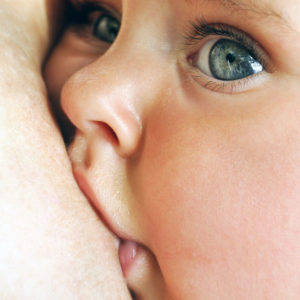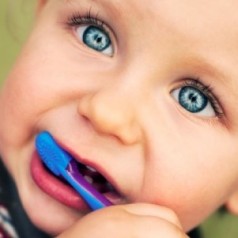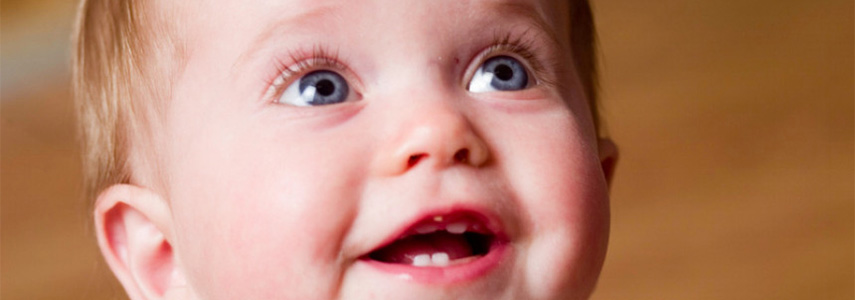When we talk about the health of our children, many conflicting theories and ways of thinking often arise, also due to old customs that over time have proven to be wrong; this also happens with regard to milk teeth. In this article we will analyze some precautions to have.
The care of the health of the youngest, even that of their oral cavity, takes place from birth, although milk teeth are not yet present, since it starts from breastfeeding. Up to what age is it convenient to breastfeed?
There is a tendency to think that breastfeeding is always good for babies, but research from the University of California of San Francisco has raised some doubts about it, leading to the conclusion that weaning beyond the second year of the child would jeopardize the health of baby teeth (source: Annal of Epidemiology).
The results of the research carried out in the field showed that 48% of breastfed babies even after the second year of life had developed caries. The result of this research, therefore, would advise not to breastfeed after two years, although further studies are needed to delve into the topic. What is sure, however, is that conflicting theories are likely to mislead mothers, who find themselves in daily difficulty on how to take care of their children’s milk teeth.
In addition to the advice of the University of California scholars, it is appropriate to talk about other measures and behaviors that, in everyday life, would help protect the health of children in the delicate period of growth of milk teeth, so as to protect their smile until appearance of permanent ones.
Although they are destined to fall, in fact, milk teeth are important in the first years of the child’s life since they have a fundamental role in the growth and constitution of the jaw and jaw, they contribute to the correct chewing and are relevant for the development of the language.
Therefore, given the established importance of milk teeth and their health, some important precautions for their care can be traced, so as to definitively dispel many taboos and commonplaces on the subject:
- it is essential to brush your teeth often, even three times a day and after meals, with particular attention to the last washing, before going to sleep. In fact, parents often tend to have their children brush their teeth only in the morning or in any case only once a day (perhaps because they believe that, being still small, they do not risk having the problems that can be more frequent in adults, such as halitosis etc…);
- nutrition is the basis of good health throughout the oral cavity, therefore, the consumption of carbonated drinks, sugar-rich foods and especially snacks between meals must be limited;
- it is absolutely necessary to prevent the child from falling asleep with the bottle full of milk in his mouth, just as it is a very bad habit to let him keep the pacifier that has been immersed in honey (although it is now a habit habit);
- if the child is experiencing aches and pains due to the first tooth, toys specially designed for milk teeth that contain cooling substances and can relieve the sensation of discomfort are recommended. Other remedies based on sweet substances are to be avoided so as not to favor the onset of caries;
- if a tooth breaks, even if from a milk, it is necessary to contact your doctor immediately, since the space left by the missing tooth would risk being occupied by the inclination of healthy teeth which, therefore, would cause malocclusions or problems with chewing, speech, etc. ..
As we have just seen, even if it is about milk teeth, it is wrong to think that, since they will soon fall, they will not bring with them all the negative consequences of wrong behaviors.
















